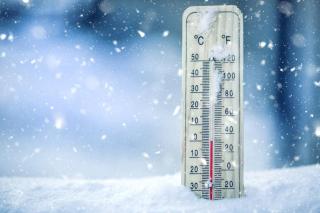Arctic Blast, Wind Chills, and Winter Weather Advisory 2/2/23

The Town of Hanover Emergency Management Team urges residents to prepare for dangerously cold weather conditions expected to impact the area late Friday, February 3rd, through Saturday, February 4th.
Dangerously cold wind chills expected. Wind chills dropping to between 20 and 35 below zero. Northwest winds gusts between 35 and 55 mph with the strongest of those winds tending to be in the higher terrain.
From 10 AM Friday to 1 PM EST Saturday. Lowest of those wind chills will occur Friday night into mid-morning Saturday.
Avoid outside activities if possible. When outside, make sure you wear appropriate clothing, a hat, and gloves. Visit our Winter Weather Preparedness resources to learn how to prepare and stay safe.
If anyone needs assistance, has questions, or is concerned about the well-being of a fellow resident, don't hesitate to get in touch with Hanover's Town Manager at 339-214-5303 (call/text) or send a message to joseph.colangelo@hanover-ma.gov. For all emergencies, call 911.
Warming Center
The Town of Hanover is prepared to open a warming center, if necessary, and will be based on several factors. If a warming center opens, a notification will be made via the Town's website and social media channels.
Space Heaters
Keep space heaters at least three feet from curtains, bedding, and anything else that can burn. Plug space heaters directly into a wall electrical socket, not an extension cord or a power strip, and remember, they are for temporary use. Always turn a space heater off when you leave the room and supervise children and pets while they are around them.
When purchasing a space heater, select a brand tested and labeled by a nationally recognized testing company, such as Underwriters Laboratories (UL). Newer space heaters should have an automatic shut-off switch that turns the device off if it tips over. Unvented kerosene space heaters are illegal for sale and use in Massachusetts. The risk of fire and carbon monoxide poisoning that they pose is too great.
Fireplaces, Woodstoves, and Pellet Stoves
Fireplaces, woodstoves, and pellet stoves should also be used safely. Open the dampener before lighting a fire; use only dry, seasoned wood; don’t use flammable liquids to start the fire; and keep a three-foot “circle of safety” around the fireplace or stove free of anything that can burn. Shovel ashes from the stove or fireplace into a metal bucket with a metal lid and place it outside on the ground away from the building. Officials recommend having the chimney inspected and the flue cleaned at the beginning of the heating season: most chimney fires occur because of a build-up of creosote, a tarry byproduct of burning wood.
Prevent Frozen Pipes
Keep garage doors closed if there are water supply lines in the garage. Open kitchen and bathroom cabinet doors to allow warmer air to circulate around the plumbing. Be sure to move any harmful cleaners and household chemicals out of the reach of children.
When the weather is very cold outside, let the cold water drip from the faucet served by exposed pipes. Running water through the pipe, even at a trickle, helps prevent pipes from freezing.
Natural Gas and Oil Heat
If you have a furnace, water heater, or oil burner with a pilot light, keep the three-foot “circle of safety” clear of anything that could catch fire, and don’t store gasoline, painting supplies, or other flammable solvents in the home: their vapors can be ignited by a pilot light. These heating systems should be checked each year, as well. If you smell gas, don’t use any electrical switches or devices: get out, stay out, and call 911.
Carbon Monoxide (CO) Reminder
Carbon monoxide is the number one cause of fatal poisonings, and home heating equipment is the leading source of carbon monoxide in the home. We can’t see, smell, or taste carbon monoxide, but CO alarms can alert you to the danger. If your CO alarm activates, leave the residence and call 911.
Create and Practice a Home Escape Plan
Everyone should have a home escape plan that accounts for two ways out of every room, and everyone should be able to open the doors and windows along the way. Remember that children, older adults, and people with disabilities may need extra assistance.
Check on Neighbors
Check on your neighbors over the weekend. Make sure you have working smoke and carbon monoxide alarms in your home.

